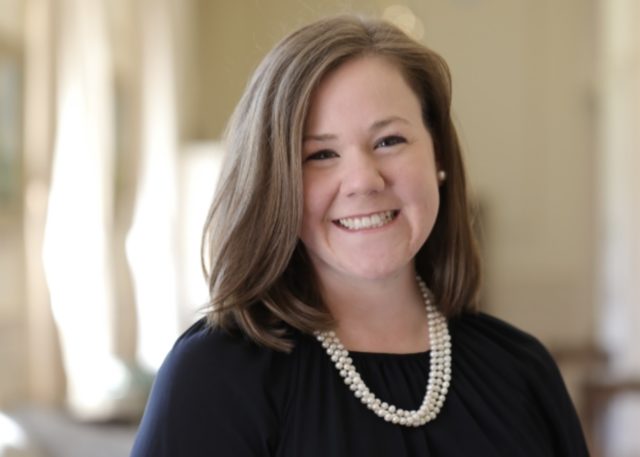By Jenna Fitzgerald | Copy Editor
Dr. Holly Oxhandler — associate dean for research and faculty development in the Diana R. Garland School of Social Work — recently released a book entitled “The Soul of the Helper: Seven Stages to Seeing the Sacred Within Yourself So You Can See It in Others.”
According to Oxhandler’s website, caregivers have “a tendency to work for the well-being of others to the point of burnout.” Her book is an invitation for caregivers to “lay down their burdens temporarily and realize that if they let their personal resources run dry, they cannot possibly care for others as fully as they wish.”
Oxhandler, who got her bachelor’s in psychology and her master’s and Ph.D. in social work, said her own journey with mental health fostered her interest in the intersection of spirituality and mental health. She said in 2017, she reached the point at which she felt like she “could no longer not write this book. Then, she spent the next four years writing it.
With COVID-19 putting additional strains on caregivers, Oxhandler said it is more important than ever to take the time to “heal from that trauma and those struggles, rather than just keep going on without a pause.” She said even before the pandemic, mental health struggles were on the rise, and caregivers were experiencing higher rates of occupational hazards like burnout, compassion fatigue and secondary trauma — realities that have been exacerbated by COVID-19.
Oxhandler discussed the mission of “The Soul of the Helper” in this context.
Why did you decide to write “The Soul of the Helper”?
“I was doing research and looking at the degree to which mental health care providers were including their clients’ faith in mental health treatment,” Oxhandler said. “I started to find that the degree to which they are motivated to live out their faith was the top predictor of whether or not they were including this area of their clients’ lives in treatment … There’s a Sanskrit term, which is ‘namaste,’ which literally translates to mean ‘I bow to you,’ but more generally we understand it as ‘the sacred in me recognizes the sacred in you’ or ‘the image of God in me honors the image of God in you.’ And that really brought order to what I was finding in my research. So as I really sat with that, I’m like, ‘This is not just for mental health care providers. This is for parents and teachers and partners and administrators and advocates and social workers and on and on and on.’ We’ve got to wake up to that divine spark within us as we go out and serve others.”
What is the ‘sacred spark’?
“It is that image within us that, within the Christian tradition, we really recognize as being that image of God,” Oxhandler said. “But there are many other faith traditions that have similar language, that echo this understanding of some sacred, divine recognition that we have that is pre-packaged within us. There is nothing we can do to earn it. There is nothing we can do to lose it. It is part of who we are, threaded in and through our whole being. And I think, in a lot of ways, that when we are moving really fast and hurrying nonstop throughout the day, we lose sight of that, which is where these seven stages come in and remind us we’ve got to reconnect with that part of who we are.”
What are the “Seven Stages to Seeing the Sacred Within Yourself So You Can See It in Others”?
“They are speed, slow, steady, still, see, shift and serve,” Oxhandler said. “And the whole thread that kind of connects them is this understanding that we, as helpers, have got to wake up to the speed at which we are operating, so that we can then mindfully slow down, identify those steadying structures that kind of help us stay at a slower pace, so that we can then move to a place of being still — because it’s not until we are really still that we can see the sacred within ourselves clearly. Once we see that image of God, that recognition that we are beloved as we are, then we can shift with compassion toward ourselves and toward those around us, so that we can then serve that sacred within ourselves and others as we go out and continue to help those around us.”
What do you hope professional caregivers take away from reading this book?
“I hope that they feel as though their experience is normalized and that they’re not alone in the ways in which they may have brushed up against the edges of burnout and exhaustion,” Oxhandler said. “But my hope is not only that they feel that sense of it being normalized but also that they feel empowered to recognize that sacred within themselves — to remember that they are beloved as they are, that there’s nothing that they could do to be loved any more or less than they are in this moment — and to really lean on that knowing of their belovedness as they go out and serve others so that those efforts to serve come from a place of unconditional love.”
What do you hope nonprofessional caregivers take away from reading this book?
“Even those who don’t identify as caregivers, I hope that they see that they are helping and serving and supporting others in a million other ways,” Oxhandler said. “And even if they don’t hear the word ‘caregiver’ and say, ‘Oh, I’m a caregiver,’ I hope that they still see — whether they are a barista, that they are still serving their customers, whether they are a professor, that they are still serving their students — that they are serving others as a part of our shared humanity and that their presence is really important in this collective humanity.”



